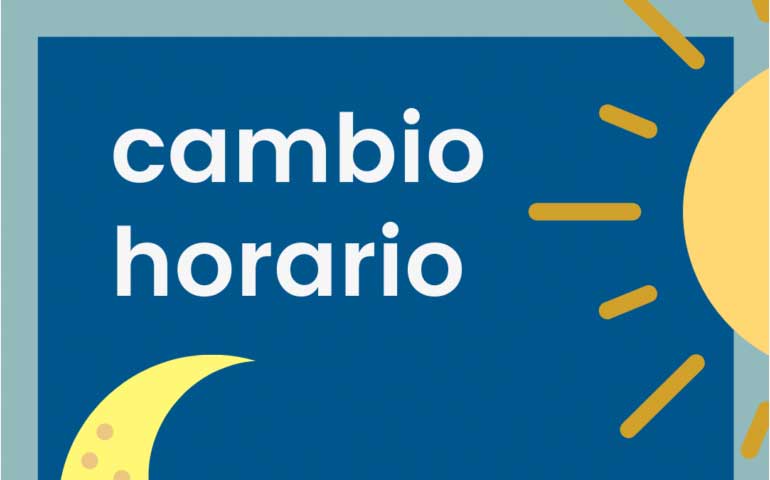We take a clear position asking, once and for all, that politicians take a decision on the time changes that we are subjected to in spring and autumn. We fully subscribe to the document of the SOCIEDAD ESPAÑOLA DE SUEÑO, on this subject. THE TIME CHANGE ALTERS OUR HEALTH.
Getting adequate sleep and maintaining a regular rhythm of the sleep-wake cycle is one of the fundamental pillars of health.
Insufficient, disorganized and poor quality sleep favors the appearance of diseases as frequent, serious and with such a high social and economic impact as cancer, Alzheimer’s disease, arterial hypertension, obesity, diabetes, heart attack, stroke, depression and anxiety.
Sleep is controlled by an internal clock in the brain that depends on external factors such as temperature and light. The latter is of great importance in the regulation of the internal clock and in the establishment of an orderly and stable sleep-wake rhythm.
On our planet, the hours of exposure to sunlight change throughout the day and it is of great importance when the sun rises and sets. Both darkness in the morning and brightness in the evening slow down the internal clock, producing an imbalance in it. This desynchronization makes people tend to go to bed later at night and wake up later in the morning. This change leads to a tendency to sleep less on weekdays and to sleep more on holidays, a situation that may favor poor work and school performance and, chronically, facilitate the onset of diseases associated with the lack and poor quality of sleep.
The time change, even if only by one hour, alters the time of exposure to the sun during the day and unbalances the internal clock, which takes several days to readjust. Changing the time involves a period of adaptation and that is why it was chosen to be done in the early hours of Saturday to Sunday. Despite this, it is not uncommon for some people to report irritability, lack of concentration, poor work performance and insomnia during the first few days after the time change. It is therefore advisable not to make changes and to promote greater exposure to natural light when most people are working or learning at school. This is what happens during winter time (GMT+1), as opposed to summer time (GMT+2).

